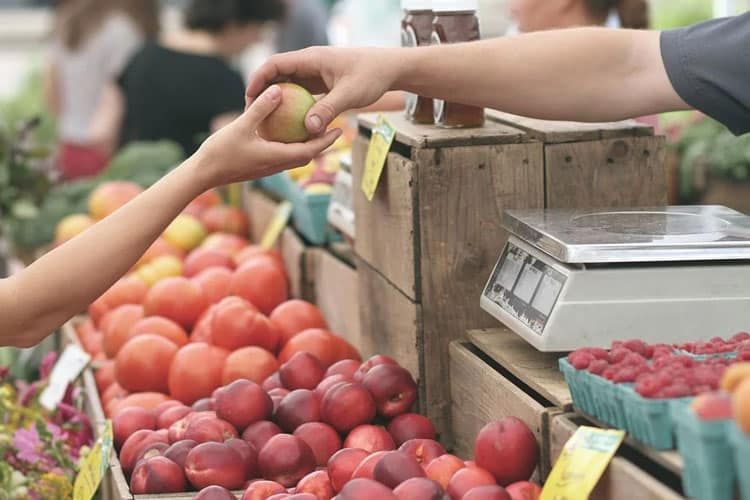Customer demand for clean, organic produce is growing, along with an awareness of the health and environmental effects of synthetic chemicals in the supply chain. In the U.S., the United States Department of Agriculture has standards and regulations that determine what makes fruit and other produce “organic.” Knowing about the steps involved and what’s behind the “organic” label can help you to discover an approach to growing that will benefit the environment while expanding your market.
For Consumers: Is It Worth Paying the Price for Organic Produce?
What makes organic fruit and produce worth the price you pay depends on your budget, health needs, and priorities.
Consider the Higher Costs of Organic Growing Techniques
Buying organic will usually cost more because of the more labor-intensive process used to grow the food. They also cost more due to the higher price of environmentally-friendly pesticides compared to conventional synthetic pesticides.
Consider the Environmental Impact
When safe, ecologically-balanced practices are used to grow your food, the local wildlife and vegetation are allowed to flourish, and local water sources are kept clean. Buying organic produce is an investment in a cleaner, healthier, more sustainable world.
Consider the Impact on Your Health
Knowing what makes fruit organic could make the decision to buy organic easier. Produce marked “organic” in the United States must not have come into contact with prohibited chemicals or substances while it was grown or in transit from the farm to the greengrocer (or your home). Knowing that you’re reducing your family’s consumption of chemicals can put your mind at ease. As the peel is where most of the pesticides are found, buying organic also means that you can eat the peel as well as the flesh and enjoy a higher intake of fiber and nutrients.
For Growers: What Makes Growing Organic Vegetables and Fruit Worth the Effort?
What makes growing organic produce a lucrative endeavor is closely tied to your agricultural philosophy and willingness to experiment with different techniques.
The Savings of Organic Production will Come with Time
With a focus on resource cycling, the first years of organic production are likely to cost more as you bring in external inputs such as compost, manure, and develop native gardens and ponds to attract beneficial insects. You might also find that you need to increase your workforce to cover the more labor-intensive approaches to soil enrichment, pest control, and weed control.
However, in future years, this initial investment to incorporate the things that make fruit and vegetables organic will start to pay off in the form of:
- Improved soil drainage
- A reduced impact of sodium on your plants
- Less need for purchasing fertilizers
- The higher financial rewards of organic sales
Begin in a Small Way
Even if you’re not ready to make the leap to 100% organic production just yet, experimenting with some of the principles of what makes fruit and produce organic can increase your familiarity and confidence with this approach. Here are a few initial ideas:
- Add organic material to the soil before planting, in the form of compost, manure, and crop waste materials.
- Plant bee-attracting plants near fruit trees that need annual pollination.
- Place ducks in the orchard to clean up the fallen fruit and fertilize the fruit trees.
- Try crop rotation and cover crops to boost the health of the soil and promote beneficial nutrient cycling.
Fruit Growers Supply is Here for You
Knowing what makes fruit organic will help you to plan for the future and potentially tap into a lucrative market. Whether you’re already a 100% organic grower, 100% conventional, or somewhere in between, be assured that Fruit Growers Supply is here for you.
To help you develop the best strategy for discovering what makes vegetables organic for yourself, we offer:
- Free consultations and on-site assessments
- Comprehensive solar irrigation systems customized to your operation
- Top-of-the-range corrugated packaging, made exactly to your specifications
- Ongoing news and education in our industry-specific blog
For a free quote or to speak with a representative, please contact us today!



You must be logged in to post a comment.